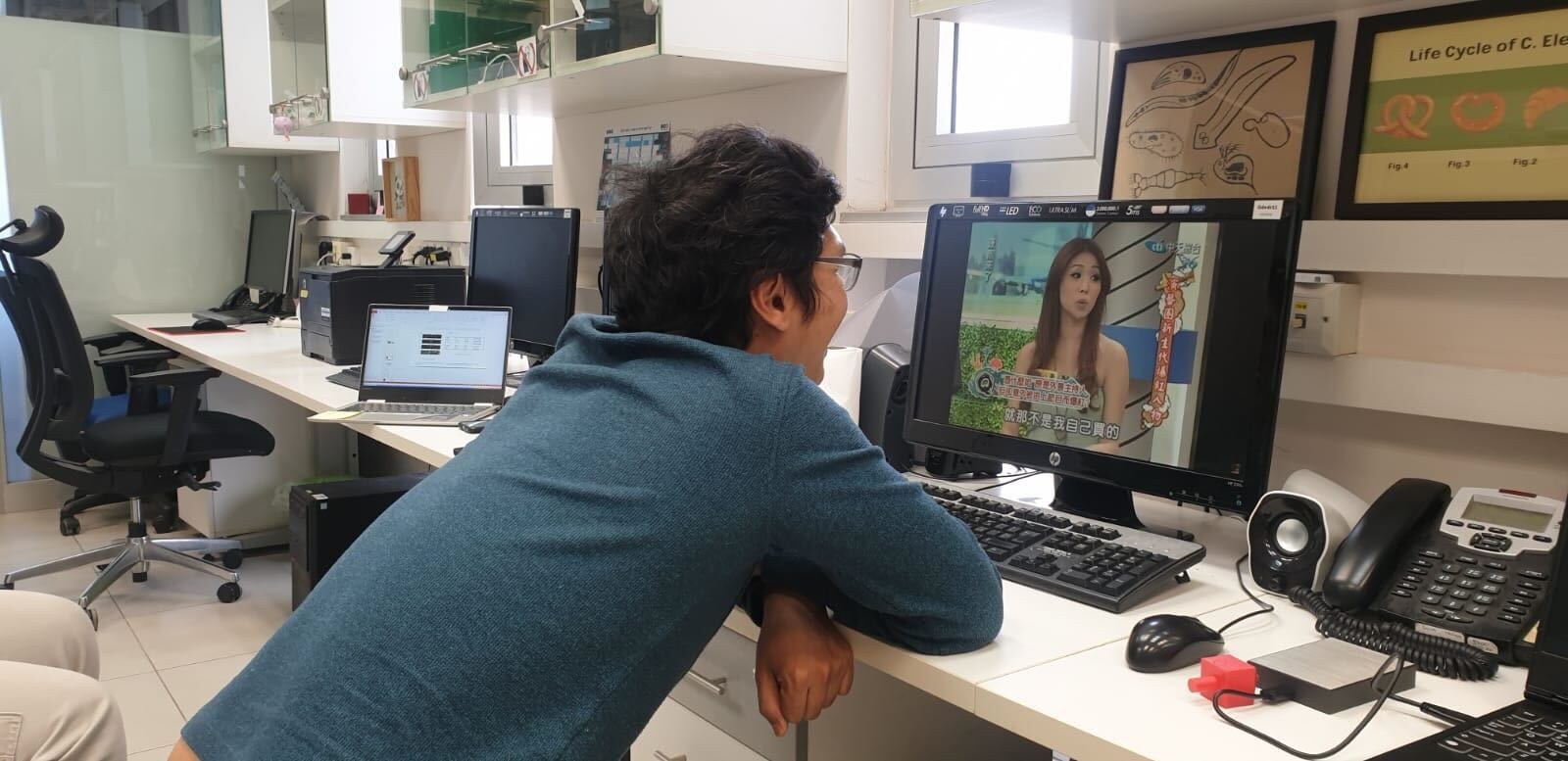Meet the preLighters: a virtual chat with Chee Kiang (Ethan) Ewe
22 November 2022
Chee Kiang (Ethan) Ewe is a postdoctoral training fellow working in the lab of Oded Rechavi at Tel Aviv University, Israel, where he studies the molecular basis of epigenetic inheritance. Last year, Ethan joined us here at preLights and since then he has become one of our most active community members. I met up with Ethan online and had a lovely chat about his very international career, the importance of mentorship, his future goals, and the importance of preprints both to him and the biological community. Also, he shared a wonderful way in which he makes sure to (re-)connect to his roots every now and then.
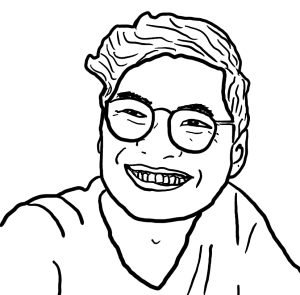
To start, how did you get into science?
To be honest, I have stumbled into a lot of things without planning it first. Every step of the way so far, someone pointed me in a certain direction, I went for it, and it turned out to be the right choice for me. The same is true for me entering the world of science. I consider myself to be a super lucky person.
“I consider myself to be a super lucky person.”
Could you tell us more about the people who have pointed you in the right direction?
I can think of five important mentors in my scientific career so far.
When I was an undergraduate student in New Zealand, I worked with a PhD student, Yamila Torres Cleuren. She was the one who showed me that I could actually do science. She was kind of fearless: I had zero experience in the lab and she just assigned me a project that she thought I could handle, trained me for two weeks and then left me alone in the lab when she was off to the International Worm Meeting. She just told me to make sure not to burn down the lab. She had faith in me right from the beginning.
Then the lab in New Zealand closed down and my advisor, Joel Rothman, asked me if I wanted to come to the United States for a PhD (UC Santa Barbara, USA). He also preferred a hands-off approach when it came to mentoring and he has been really helpful in my career development. I think that his mentoring style really boosted my creativity and independence as a scientist. Also, there was a project scientist, Pradeep Josh (PJ), in the Rothman lab who would challenge me with difficult questions every day and really taught me how to be a rigorous scientist.
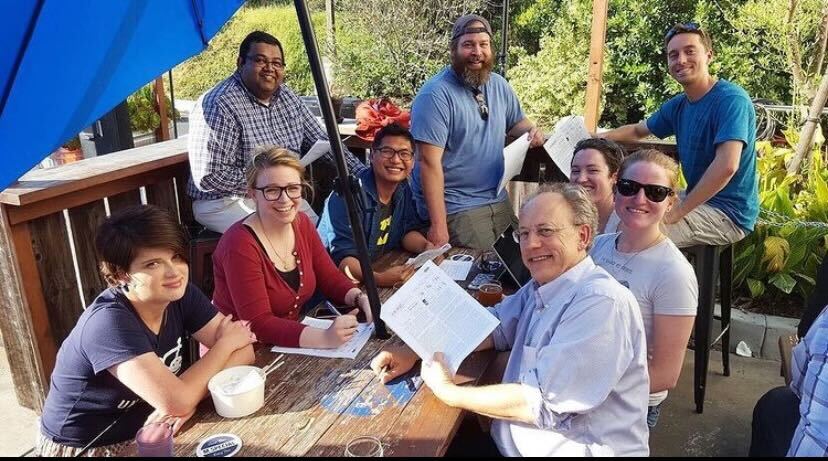
And then there was the graduate advisor at UC Santa Barbara, Kathy Foltz. She was super kind and provided guidance throughout my entire PhD; she was a real role model. She also got me involved in lots of programmes boosting my ‘soft skills’, e.g. organisational and leaderships skills. Over the years, she provided me with a lot of useful advice. Like when I was organising the Department Retreat, she would guide me along the way and tell me how to best approach people, how to write effective emails that prompt a response etc. Things you wouldn’t necessarily learn in the lab.
Finally, there is my current boss, Oded Rechavi. He’s amazing and again very hands-off when it comes to mentoring. I can do whatever I want and that is just what I’m looking for. I don’t know if I actively seek out this kind of mentorship, but it fits my personality. I need to be able to run free and explore things myself.
“I need to be able to run free and explore things myself.”
How do you take the lessons you’ve learned from these people into a position in which you are the mentor?
Basically, you look at the strengths and weaknesses of the approaches you’ve seen and then pick what you like. So I guess my mentoring style is a combination of things I have learned over the years. During my PhD, there were many undergraduates in the lab. It’s very common in the United States. Overall, I’ve trained seven undergrad, master and PhD students. Currently, I supervise an undergraduate student who works with me on certain projects and I try to adapt that mentoring style I’ve come to like: here is your own project, do what you can and let’s see how things turn out. So far, things have been going great!
You’ve been all over the world. Could you tell us a bit more about your travels?
I was born and raised in a small town in Malaysia. For my undergraduate, I went to New Zealand, Auckland. Afterwards, I worked in Australia for a little while – doing research on honey bees – after which I went to the United States of America for a PhD. And then finally, I came here to Israel for my postdoc.
It’s really fun for me to travel to different places, though it has also come with its unique challenges. When I recently moved to Israel, for example: Malaysia and Israel don’t have diplomatic relations, which technically means I’m not allowed here. In fact, my passport explicitly states that it doesn’t cover travel to Israel. So, as you can imagine, it was a year-long back and forth with the consulate to get my visa to be able to work here. It was worth it though: it’s a totally new experience living in a bigger city and I love it!
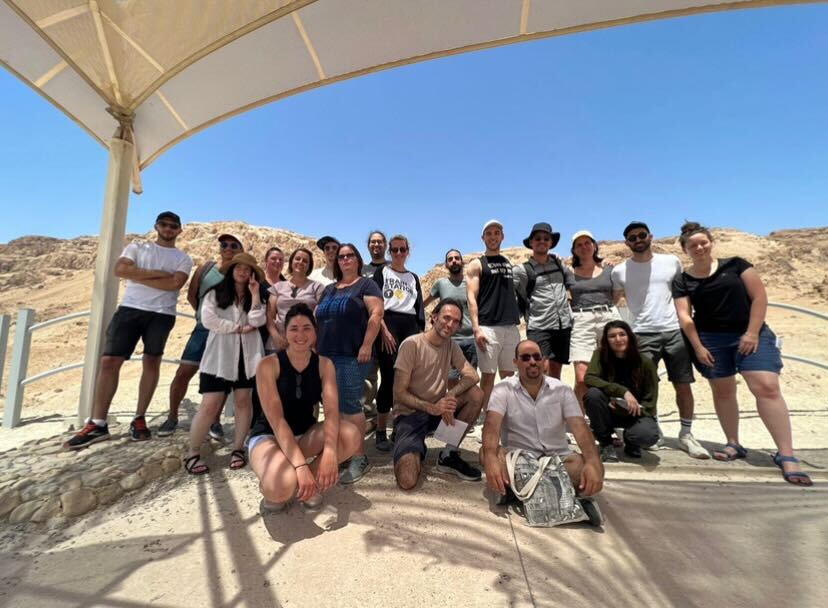
What does the future hold for you?
My main goal is to open my own lab and stay within academia. Preferably somewhere that I haven’t been yet, perhaps somewhere in Europe. But I’m also really interested in science writing and science communication. So, I could also see myself working in scientific publishing or journalism.
In case I would have the opportunity to start my own lab, I would like to combine the things that I’ve learned over the years. As part of my postdoc here, we study small RNAs and inheritance and during my PhD the focus was more on developmental biology. So, I envision that the focus of my own lab would be on deciphering how inheritance of small RNAs impacts development. C. elegans will be an ideal model for this type of work, though I hope to incorporate more model systems. It would be a theme- rather than model organism-driven lab.
“In case I would have the opportunity to start my own lab, I would like to combine the things that I’ve learned over the years.”
You mention C. elegans here and once referred to yourself as a ‘worm farmer’. Could you please elaborate on this?
I’ve been part of the worm (C. elegans) community for a while now and it’s just such a friendly and warm group of people. Everyone’s been so very helpful and I really love doing what I do partly because of the resources and support provided by the worm community – it has made my work so much easier and faster.
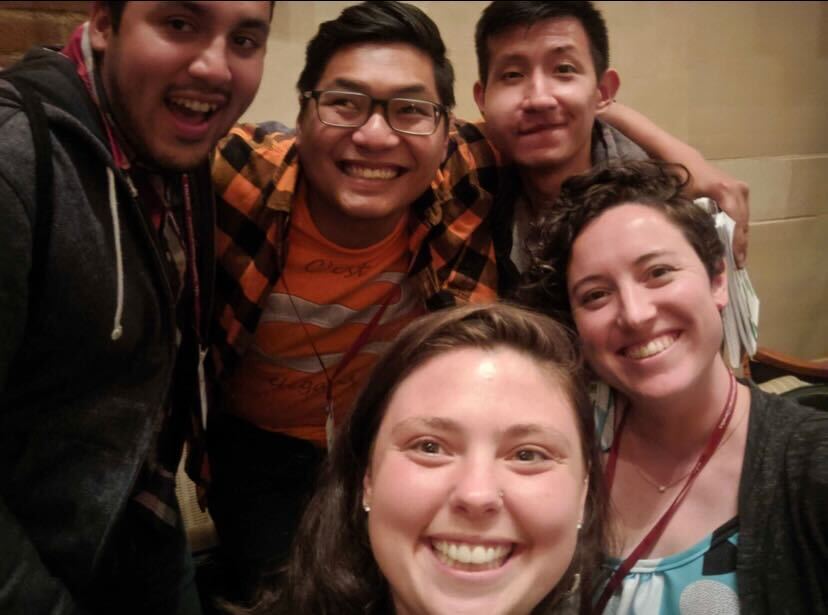
Have you also felt supported in discovering and developing your own interests?
Yes, very much. Before my PhD, I was involved in science, but not exposed much to scientific writing. During my PhD, my advisor was really guiding me through every step in writing a scientific paper. It actually got me really interested in playing with words and sentence structures and this interest eventually also led me to preLights.
What have you gained from your experiences as a preLighter?
Mostly, I have made a lot of new friends. Not only among my fellow preLighters, but also preprint authors. I’m on Twitter and I follow a lot of people who I admire as scientist. I usually pick my preLights from my Twitter feed. All the authors I’ve contacted for a comment have been super friendly and constructive in their responses. Going in, I’m not sure I expected this.
preLights has really helped me to write more. It has allowed me to think about ways to write for a lay audience and that’s been an interesting experience. It has also helped me a lot when going back to writing scientific papers. What I particularly enjoy about writing preLights is thinking about the Tweetable Summary; instead of a one-line summary, I just play with words and try to think of a good pun. Sometimes I bounce ideas of my lab mates and ask them to weigh in.
What do you feel are the main benefits of preprints, especially for early career researchers? What do you see as the main benefits of preprinting your work?
It’s interesting to see that my reading list is now almost exclusively made up of preprints. Often, when I notice that a preprint I read has finally been published, I scroll through the figures and notice that not much has changed. I then leave the journal article alone, because I already got the information I needed from the preprint. I do often try out new ideas based on findings I discover in preprints.
“It’s interesting to see that my reading list is now almost exclusively made up of preprints.”
The ability to publish preprints has helped me a lot in getting my work out early – it can make a real difference! For example, when I was applying for an EMBO postdoctoral fellowship. At that time, I had four published papers but also three preprints. Being able to mention them in the application was very important to me (and the outcome of the application).
I notice that things are changing quite a bit. The lab next door to my former PhD lab would never post preprints, but this has now changed: I recently came across a preprint from them. Back when I was there, the PI would tell my advisor that you don’t want ‘to wash your dirty linen in public’, but in reality, no one cares: if your data are solid, it can and should be shared, I think.
In the future, I think it would be great if the review reports and preprints could be merged into one document. This way, you would immediately be aware of the reviewers’ comments as they are part of the main text.
Thanks for your time Ethan! As a last thing, could you perhaps share something people may not know about you?
When I go home – really every day – I rewatch this Taiwanese game show: Kang Xi Lai Le. It’s mostly a nostalgia thing. Basically, it’s just a bunch of celebrities who talk about random things. They speak Chinese which is my mother tongue. I never speak Chinese here in Israel which is perhaps why watching this show has become a way to (re-)connect to my roots.
“When I go home – really every day – I rewatch this Taiwanese game show: Kang Xi Lai Le”
